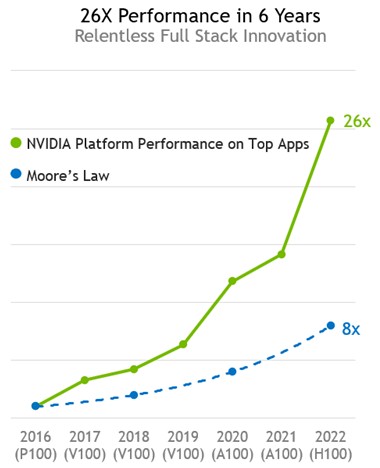Axelera lands new funds as the AI chip market heats up | TechCrunch
The generative AI boom is driving the demand for AI chips, which are purpose-built to train and run generative AI models. And major players, from VCs to startups, are scrambling to get in on the ground floor.
SoftBank’s Masayoshi Son is reportedly looking to raise $100 billion for a chip initiative that would compete with tech giant Nvidia. OpenAI, meanwhile, is said to be in talks with investment firms to launch an AI chip-making venture.
AI chip startup Axelera has kept a comparatively low profile. Nevertheless, it has managed to win over backers including Samsung in part by focusing on a niche within the burgeoning AI chip market: chips that run AI on edge devices.
Axelera's Approach to AI Chip Design
“There’s no denying that the AI industry has the potential to transform a multitude of sectors,” Fabrizio Del Maffeo, one of the co-founders of Axelera and its CEO, told TechCrunch in an interview. “However, to truly harness the value of AI, organizations need a solution that delivers high-performance and efficiency while balancing cost.”
Axelera — headquartered in the Netherlands, with a roughly 180-person workforce spread across offices in Belgium, Switzerland, Italy and the U.K. — designs AI-running chips and systems for applications like security, retail, automotive and robotics that it supplies to partners manufacturing B2B edge computing and internet of things products.

Axelera was born out of an effort led by Del Maffeo and a group at Imec, the Belgium-based technology lab, along with Evangelos Eleftheriou and a group of Zurich-based IBM researchers to build a highly efficient AI chip architecture. The founding team incubated much of Axelera within Bitfury Group, a blockchain company specializing in Bitcoin hardware.
Innovative AI Hardware Stack
The defining characteristics of Axelera’s AI hardware stack are the instruction set architecture (ISA) RISC-V and in-memory computing. ISAs are a technical spec at the foundation of chips that describe how software controls the chip’s hardware. Chip designers typically license an existing ISA from a large chipmaker such as Arm or Intel, but RISC-V presents an open, no-royalties-attached alternative. As for in-memory computing, it refers to running calculations in a system’s RAM to reduce the latency introduced by storage devices.
Axelera isn’t the first to try its hand at an in-memory and/or RISC-V-based architecture for AI chips. NeuroBlade is developing chips that combine both compute and memory into a single hardware block for data processing. MemVerge, GigaSpaces, Hazelcast and H20.ai also offer in-memory hardware solutions for AI and data analytics applications. Elsewhere, Tenstorrent, backed by Hyundai Motor Group and Samsung, sells AI processors and other related IP built around RISC-V.
Axelera's Growth and Funding
Axelera has attempted to differentiate itself by delivering both chip hardware and software to manage and deploy AI models to that hardware. Axelera on Thursday announced that it closed a $68 million Series B funding round that brings its total raised to $120 million. Contributors to the round include the European Innovation Council Fund, Innovation Industries Strategic Partnership Fund, Invest-NL, and Samsung Catalyst Fund.
The new cash will be put toward expanding to new markets ahead of full production of Axelera’s flagship Metis AI platform in H2 2024, according to Del Maffeo. Axelera also has an eye on the data center chip market, with preliminary plans to fund R&D of chips aimed at high-performance compute use cases.
“Metis entered in full production in Q2 and will be delivered in volume in Q3,” Del Maffeo said. “Axelera AI is now developing a new generation of products for computer vision, large language models and large multimodal models. This new product family will be unveiled later this year and enter in full production in 2025.”

The challenge will be shipping its AI chips at scale — and competing against countless others in the AI chip race. Axelera has little chance of unseating entrenched vendors like Nvidia anytime soon, if ever. But nabbing even a fraction of the market would be a meaningful win.
Future of Axelera
“The funding supports our mission to democratize access to AI, from the edge to the cloud,” Del Maffeo said, adding that Axelera has “tens” of enterprise customers. “By expanding our product lines beyond the edge computing market, we are able to address industry challenges in AI inference and support current and future AI processing needs.”
Every weekday and Sunday, you can get the best of TechCrunch’s coverage. Startups are the core of TechCrunch, so get our best coverage delivered weekly. The latest Fintech news and analysis, delivered every Tuesday. TechCrunch Mobility is your destination for transportation news and insight.
By submitting your email, you agree to our Terms and Privacy Notice.










